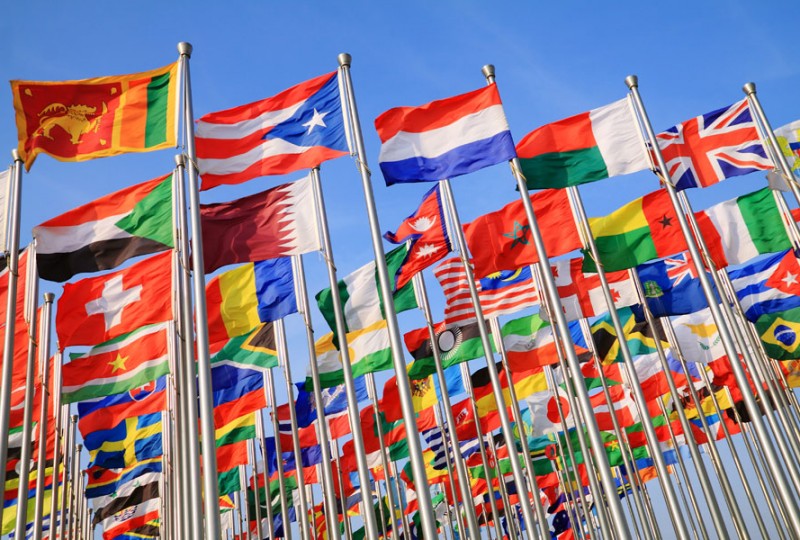
Knowledge and Culture, resources in English with interesting news and facts from the world, some definitions and articles feeds by English-culture.com blog
Without “ethical culture”, there is no salvation for humanity.
Albert Einstein
Why, but learning would not be made common. Yea, but learning cannot be too common, and the commoner the better. Why, but who is not jealous his mistress should be so prostitute? Yea, but this mistress is like air, fire, water: the more breathed, the clearer; the more extended, the warmer; the more drawn, the sweeter. It were inhumanity to coop her up, and worthy forfeiture close to conceal her.
John Florio
This above all, To thine own self be true; And it must follow, as the night the day, Then canst not then be false to any man.
William Shakespeare
Education’s purpose is to replace an empty mind with an open one.
Malcolm S. Forbes
Language is a symbolic guide to culture. Vocabulary is a very sensitive index of the culture of a people. Linguistics is of strategic importance for the methodology of social science.
Edward Sapir
Perhaps more than at any other time in the present century, cultural analysis lies at the center of human sciences.
Robert Wuthnow
You don’t have to burn books to destroy a culture. Just get people to stop reading them.
Ray Bradbury
What do we live for; if it is not to make life less difficult to each other?
George Eliot
Culture, the acquainting ourselves with the best that has been known and said in the world, and thus with the history of the human spirit.
Matthew Arnold
Culture, then, is a study of perfection, and perfection which insists on becoming something rather than in having something, in an inward condition of the mind and spirit, not in an outward set of circumstances.
Matthew Arnold
All over the place, from the popular culture to the propaganda system, there is constant pressure to make people feel that they are helpless, that the only role they can have is to ratify decisions and to consume.
Noam Chomsky
A people without the knowledge of their past history, origin and culture is like a tree without roots.
Marcus Garvey
Without memory, there is no culture. Without memory, there would be no civilization, no society, no future.
Elie Wiesel
A multicultural society does not reject the culture of the other but is prepared to listen, to see, to dialogue and, in the final analysis, to possibly accept the other’s culture without compromising its own.
Reuven Rivlin
No culture can live if it attempts to be exclusive.
Mahatma Gandhi
Imperialism is not only the exploitation of cheap labour-power, raw materials and easy markets but the uprooting of languages and customs – not just the imposition of foreign armies, but of alien ways of experiencing. It manifests itself not only in company balance-sheets and in airbases, but can be tracked to the most intimate roots of speech and signification. In such situations, which are not all a thousand miles from our own doorstep, culture is vitally bound up with one’s common identity that there is no need to argue for its relation to political struggle. It is arguing against it which would seen incomprehensible.
Terence Eagleton
Culture is defined as the social behavior and norms found in human societies. Culture is considered a central concept in anthropology, encompassing the range of phenomena that are transmitted through social learning in human societies. Culture is the characteristics and knowledge of a particular group of people, encompassing language, religion, cuisine, social habits, music and arts.
Some aspects of human behavior, social practices such as culture, expressive forms such as art, music, dance, ritual, and religion, and technologies such as tool usage, cooking, shelter, and clothing are said to be cultural universals, found in all human societies.
The concept of material culture covers the physical expressions of culture, such as technology, architecture and art, whereas the immaterial aspects of culture such as principles of social organization (including practices of political organization and social institutions), mythology, philosophy, literature (both written and oral), and science comprise the intangible cultural heritage of a society. The word “culture” derives from a French term, which in turn derives from the Latin “colere” which means to tend to the earth and grow, or cultivation and nurture and It shares its etymology with a number of other words related to actively fostering growth.

Listen to local radio stations while driving through the cities around the world. Drive & Listen.
We can have hundreds of definitions of culture, but the most useful one is of a pragmatic nature, that is all the knowledge you have and need to solve problems and live a better life. Anyway, culture refers to the cumulative deposit of knowledge, experience, beliefs, values, attitudes, meanings, hierarchies, religion, notions of time, roles, spatial relations, concepts of the universe, and material objects and possessions acquired by a group of people in the course of generations through individual and group striving. Culture is the systems of knowledge shared by a relatively large group of people.
Culture is communication, communication is culture. Culture in its broadest sense is cultivated behavior; that is the totality of a person’s learned, accumulated experience which is socially transmitted, or more briefly, behavior through social learning. A culture is a way of life of a group of people-the behaviors, beliefs, values, and symbols that they accept, generally without thinking about them, and that are passed along by communication and imitation from one generation to the next. Culture is symbolic communication. Some of its symbols include a group’s skills, knowledge, attitudes, values, and motives. The meanings of the symbols are learned and deliberately perpetuated in a society through its institutions.
Culture consists of patterns, explicit and implicit, of and for behavior acquired and transmitted by symbols, constituting the distinctive achievement of human groups, including their embodiments in artifacts; the essential core of culture consists of traditional ideas and especially their attached values; culture systems may, on the one hand, be considered as products of action, on the other hand, as conditioning influences upon further action. Culture is the sum of total of the learned behavior of a group of people that are generally considered to be the tradition of that people and are transmitted from generation to generation. Culture is a collective programming of the mind that distinguishes the members of one group or category of people from another.
The term “Western culture” has come to define the culture of European countries as well as those that have been heavily influenced by European immigration, such as the United States, according to Khan University. Western culture has its roots in the Classical Period of the Greco-Roman era and the rise of Christianity in the 14th century. Other drivers of Western culture include Latin, Celtic, Germanic and Hellenic ethnic and linguistic groups. Today, the influences of Western culture can be seen in almost every country in the world.
Eastern culture generally refers to the societal norms of countries in Far East Asia (including China, Japan, Vietnam, North Korea and South Korea) and the Indian subcontinent.
Like the West, Eastern culture was heavily influenced by religion during its early development, but it was also heavily influenced by the growth and harvesting of rice, according to the book “Pathways to Asian Civilizations: Tracing the Origins and Spread of Rice and Rice Cultures” by Dorian Q. Fuller. In general, in Eastern culture there is less of a distinction between secular society and religious philosophy than there is in the West. However different cultural groups think, feel, and act differently.
There is no scientific standards for considering one group as intrinsically superior or inferior to another. Studying differences in culture among groups and societies presupposes a position of cultural relativism. It does not imply normalcy for oneself, nor for one’s society. It, however, calls for judgment when dealing with groups or societies different from one’s own. Information about the nature of cultural differences between societies, their roots, and their consequences should precede judgment and action. Negotiation is more likely to succeed when the parties concerned understand the reasons for the differences in viewpoints.

Cultural studies. A name for the educational approach which considers society and its various cultural manifestations – institutions and political systems, the media, plastic arts such as painting and sculpture, music, writing of all kinds. Traditional literature (in the form of an established CANON of highly valued texts) may (or may not) be considered alongside other kinds of writing and other modes of artistic expression.
Culture. (Lat. ‘cultivation, tilled ground’) This concept can be used in at least three different ways, which interconnect, and are, to some extent, liable to be in competition with each other. In its broadest sense “culture” refers to all activities and value systems within a society. Less inclusively, it encompasses the intellectual and artistic activities and products of a society. Or it can be used evaluatively and selectively, to describe the “best” artistic activities and products in a society. In general the wider, neutral definition has tended to gain currency in the late part of the twentieth century, and the evaluative use of the term (as in Arnold’s Culture and Anarchy, 1869) has been replaced by the notion of “high” culture, with the concomitant concept of “popular” or “mass” culture.
Please Note: a very useful website we suggest to visit is Open Culture that scours the web for the best educational media. They find the free courses and audio books you need, the language lessons & educational videos you want, and plenty of enlightenment in between.
Other cultural posts:
Multicultural Britain a brief analysis
Christmas markets in Italy and Germany
Questions-on-the-United-Kingdom
Numbers of London, a city guide
British-history-and-colonialism


